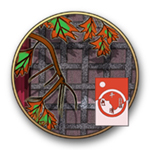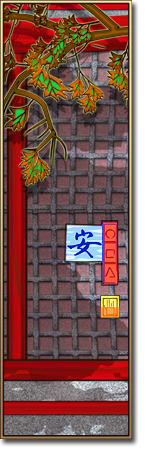On The Way: The Daily Zen Journal
Understanding Impermanence
Sheng Yen (1930-2009)

When I was young, it seemed forever between birthdays; now each year flies quickly by. I turn around and twenty years are gone! From the perspective of cosmic time, a life is shorter than the blink of an eye.
Buddhism teaches that all phenomena—all things seen, heard, thought, or experienced—are impermanent, arising and perishing in a fragment of time. When Shakyamuni Buddha first turned the Dharma Wheel at Deer Park, he expounded the doctrine of impermanence.
During every evening service, we recite, “Be mindful of impermanence; be careful of idleness.” The canon of Buddhism is full of admonitions about impermanence.
The time you have to practice is precious, fleeting. Once gone, it can never return. If you maintain a clear awareness of impermanence, you will not waste time engaging in vexing thoughts like jealousy, arrogance, or pointless criticism of others and self. Not only does this harm you, it harms those you come in contact with. Therefore, keeping this mind of impermanence, you will work harder and practice better, and you will benefit yourself and others.
When you are drowsy during practice, think of impermanence—you will realize you have no time to waste sleeping; when distracted by a scattered mind, remember impermanence—you will realize there is no time to waste in scattered thoughts. Coming to retreat is a rare opportunity; make the best of it.
If you have been on many retreats and think you’ve been practicing seriously for years, this is self-delusion. If you consider one or two hours of daily meditation and a yearly retreat as continuous practice, you’re mistaken. Most of your practice time, including now, you are lost in vexation, wandering thoughts, and drowsiness. Is this true practice?

Great Chan practitioners never let their minds stray far from impermanence, and when not meditating, they use the teachings of the Buddhadharma to help themselves and others.
When you truly realize that life is impermanent and time is short, you will be able to practice consistently and hard. From now on, prostrate to your cushion, your bodhimandala, before sitting, to remind yourself of this. Vow to be diligent. After you sit down, make another vow not to anticipate the bell. Plunge wholeheartedly into the practice. You must do this, because life is impermanent, and time is short.
While being mindful of impermanence, continue to relax your body and mind. It sounds inconsistent, but you must have an alert and diligent, yet relaxed, attitude. Tension will exhaust you. If you relax to the point of falling asleep, kneeling on the hard floor for a few minutes should wake you up. If merely drowsy, open your eyes wide and stare at the wall while you continue to meditate. That will help drowsiness subside.
Because our sense of time in daily life is slow, maintaining a mind of impermanence is difficult. We become complacent and think we have all the time in the world. Retreats equip us with knowledge and experience of impermanence that can only enhance our daily lives.

Understanding impermanence does not mean taking license to do whatever we want, since “it is all going to end soon anyway.” On the contrary, because we understand impermanence, we know we have no time to waste in idleness, especially in practice.
I once met a man with only a few months to live who accomplished several years’ worth of practice in those remaining months. If you can develop a similar attitude and apply it to practice, your progress will be quick and smooth.
Sheng Yen (1930-2009)
Source – Attaining the Way: A Guide to the Practice of Chan Buddhism – Sheng Yen 2006





Nothing teaches impermanence better than losing someone you love. What a physical, emotional, and spiritual experience of impermanence!
While of course, we all realize the idea of impermanence through the sun, the weather, our fluctuating states of being, no reminders or vows have the impact of Life pulling the rug out from under your feet like the tangible disappearance of someone from your daily life.
Those who are “dog people” realize this several times over as their companionship is limited when we bring them into our lives.
On September 2nd Radar, our Belgian Malinois, called us to his side with a wolf howl/song at 4 am while he was unresponsive. He left us surrounded by love and deep appreciation for what he brought to everyone who knew him and to Daily Zen. For the past ten years, Radar has been much of our inspiration and a true living teacher of the Way. We were not expecting this as everyone who met him couldn’t believe he was 10.
So this teaching has special importance to us, and we are forever changed by this loss. However, we are honored to have known him, and he has his own room of zencards in Radar’s Roku which we will be expanding over time.
With this most personal note of commentary, we end/begin this chapter of our lives. Hopefully, we will have many more together along the Way.
Warmly and most sincerely,
Elana Scribe for Daily Zen